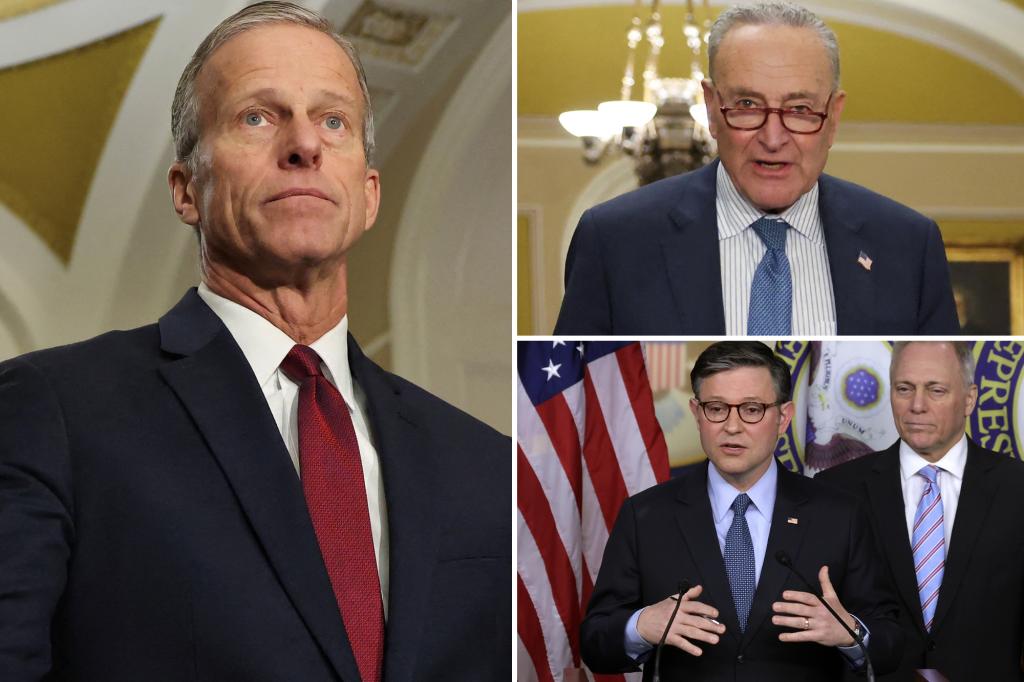The Senate overwhelmingly approved the National Defense Authorization Act (NDAA) for fiscal year 2024, allocating $895 billion to the Pentagon. This hefty budget, marking a modest 1% increase from the previous year, passed with a strong bipartisan vote of 85-14, demonstrating broad support for military spending despite contentious debates over specific provisions. The NDAA, a critical annual piece of legislation, authorizes defense expenditures and outlines priorities for the military. After passing both chambers of Congress, it awaits President Biden’s signature to become law. The final version reflects compromises on both sides of the aisle, highlighting the complex interplay of political priorities and national security concerns.
One of the most heated debates centered around a provision restricting the use of military funds for gender-affirming care for transgender children of service members. This addition, championed by Republicans, prohibits Tricare, the military’s health care system, from covering such treatments for minors under 18. The inclusion of this clause sparked significant pushback from Democrats, with several senators, including Sen. Tammy Baldwin (D-Wis.), arguing that it would negatively impact thousands of children in military families. Estimates vary, but some suggest that between 6,000 and 7,000 children of service members could be affected by this policy change. The debate over transgender care in the military reflects a broader societal conversation about gender identity and access to healthcare, extending beyond the NDAA’s budgetary implications.
Despite the controversy surrounding transgender care, the NDAA also incorporates provisions aimed at enhancing the well-being of service members. A notable inclusion is a 4.5% pay raise for all military personnel scheduled for the beginning of 2025. This across-the-board increase acknowledges the sacrifices and dedication of those serving in the armed forces. Further bolstering recruitment efforts, the bill allocates a more substantial 14.5% pay raise specifically for junior troops, reflecting efforts to address recruitment challenges and incentivize military service. These pay increases underscore the importance of attracting and retaining qualified personnel in an increasingly complex global security environment.
Beyond personnel matters, the NDAA addresses several emerging national security concerns. An amendment introduced by Sen. Joni Ernst (R-Iowa) authorizes the Department of Defense (DOD) to enhance border security by combating the growing threat of unmanned aerial vehicles (UAVs), commonly known as drones. This provision reflects concerns about the vulnerability of U.S. borders to drone incursions, particularly in light of recent incidents in New Jersey and New York. The NDAA also empowers the National Guard to support border patrol efforts, signaling a continued focus on stemming illegal immigration. The Ernst amendment and related border security measures highlight the evolving nature of national security threats and the need for adaptive strategies.
Within the NDAA, there are provisions tackling internal issues within the Department of Defense. The bill institutes a hiring freeze for diversity, equity, and inclusion (DEI) positions pending the completion of an ongoing DOD investigation into existing DEI programs. This move reflects concerns about potential bias and effectiveness within these initiatives. Further addressing potential conflicts of interest, the NDAA restricts Pentagon contracts with companies that utilize advertising firms known to target conservative media outlets. These measures aim to ensure transparency and accountability in defense spending.
The final version of the NDAA reflects several compromises and dropped proposals from both parties. Republicans sought unsuccessfully to include a ban on mask mandates for viral infections, a broader ban on transgender coverage for adults, and restrictions on Pentagon-funded travel for abortions. Meanwhile, Democrats pushed for an expansion of in vitro fertilization (IVF) coverage for service members beyond those with service-related infertility, a proposal that did not make it into the final bill. These omitted provisions underscore the complex negotiation process surrounding the NDAA and the diverse range of concerns impacting military personnel.
Passage of the NDAA serves as a critical step in addressing national security priorities and supporting the military. While the bill contains several contentious provisions, its bipartisan support signals a commitment to funding defense initiatives despite political differences. House Speaker Mike Johnson (R-La.) highlighted the NDAA’s focus on cost-saving measures, claiming that it achieves $31 billion in savings by targeting inefficient programs and bureaucratic bloat. With the NDAA awaiting the President’s signature, Congress remains under pressure to address the looming government funding deadline to avert a government shutdown. The confluence of these legislative priorities underscores the complex interplay of budgetary concerns, national security, and political maneuvering within the U.S. government.

